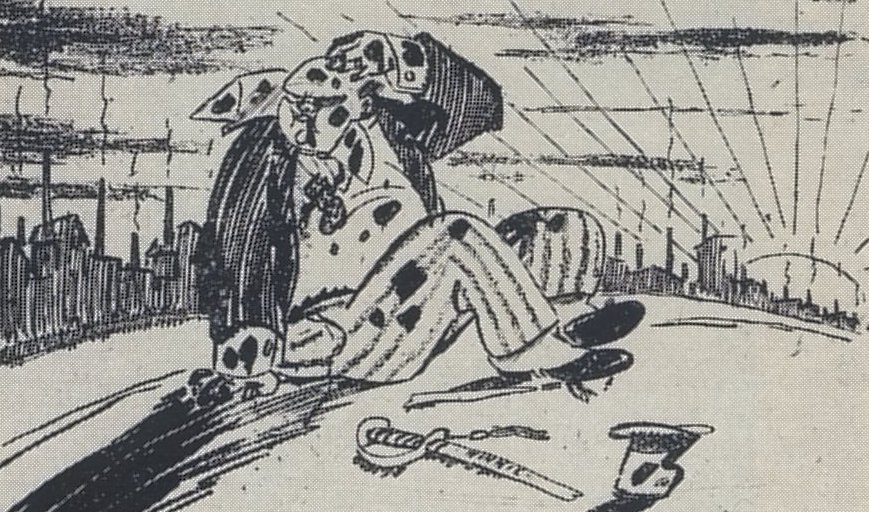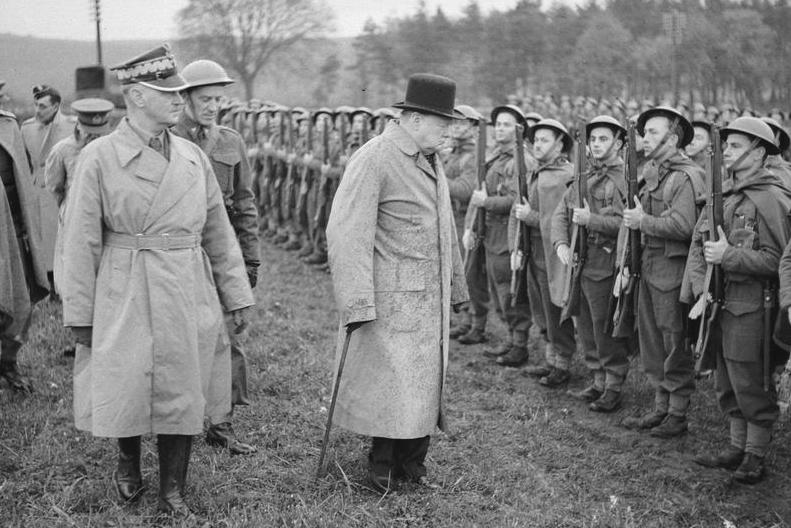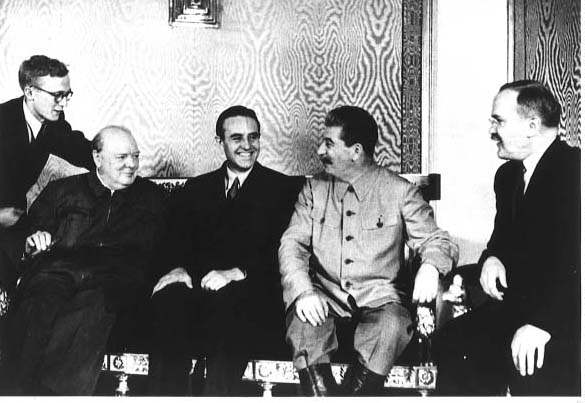



Mr. Paul Bonowicz staged a one-man protest against Churchill in South Ruislip, Middlesex. He denounced “the lies in British books about Winston Churchill. I am Polish and we know he betrayed Polish people.” He added: Churchill “knew about the Holocaust. He knew Jewish people were dying, but he didn’t help. After the war there was a deal between Churchill and Stalin, and the price was Poland. Part of my country went to the Soviets. It was Churchill who decided which part, not the Poles.” —Uxbridge Gazette.
Churchill did know about the Holocaust, and alone among allied leaders, he tried to do something about it.…

A magazine fact checker writes asking if Churchill ever said, “Stalin never broke his word to me.” The short answer is yes. The long answer shows how careful we should be when quoting Churchill.
The source of this quote is the journalist C.L. Sulzberger (1912-1993), in his 1970 book, The Last of the Giants, page 304. In it Sulzberger reports his “five hours with old Winston Churchill” at Chartwell on 10 July 1956.
Churchill, wrote Sulzberger, thought Stalin “a great man, above all compared to Khruschev and Bulganin,” and quoted Churchill as follows:
Stalin never broke his word to me.…
“Saving the Nations from Hell”: The “Kingly Conference,” 1914 (Excerpt)
(Read more at Hillsdale College Churchill Project)
Churchill’s faith in personal diplomacy—solving intractable problems by meetings at the highest level—was famously expressed during World War II.
Less widely known is Churchill’s 1914 proposal for a conference of heads of state (including, it seems, French President Raymond Poincaré) in an effort to head-off World War I. The scheme failed, but not for Churchill’s lack of trying.
There is little on Churchill’s “kingly conference” in the literature. There is no reference in Churchill’s The World Crisis, Asquith’s memoirs, or biographies by Manchester, Jenkins, Rose, Charmley and Birkenhead, though Sir Martin Gilbert includes in the official biography an excerpt from a cabinet member which records Churchill’s words in the cabinet of July 27th:
Churchill said we were now in a better than average condition, & the fleet was at war strength….Churchill,…
I find the glorification of Churchill quite disgusting. It is typical British-American arrogance to ignore the outcome of WW2 for the peoples of Eastern Europe, not to speak of the Germans. Churchill knew from the beginning about the terrible fate of the Russians and many other East European peoples under Bolshevist dictatorship. He obviously didn’t care. He was obsessed with anti-German hatred. Knowing that he bombed German cities, killing thousands of civilians long before the Germans were retaliating, makes him in my opinion even worse than Hitler. Why did he go into alliance with Stalin against the Germans?…
Brandy Banter: The Evening Standard described ArArAt Armenian brandy, once reserved for Communist party elite. It was “the brandy that Stalin served Churchill” according to consumer business editor Jonathan Prynn:
The prime minister enjoyed ArArAt brandy when it was served by Stalin at the Yalta conference in February 1945. After the Second World War, the Soviet leader arranged for Churchill to be sent 400 bottles every year.
This seems highly doubtful. If so, for how long, one wonders? By 1946, Churchill was saying things about the Russians that they probably didn’t think merited gifts.…